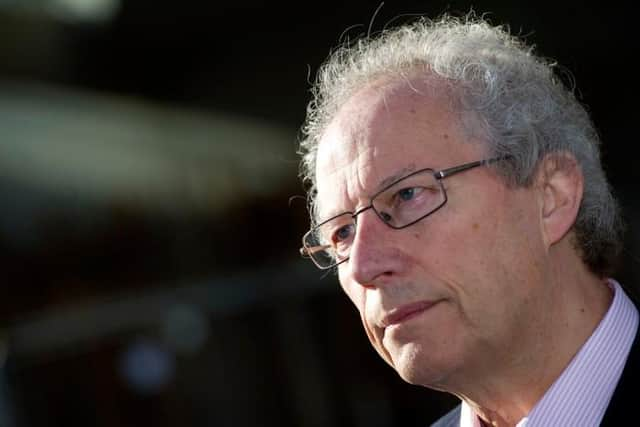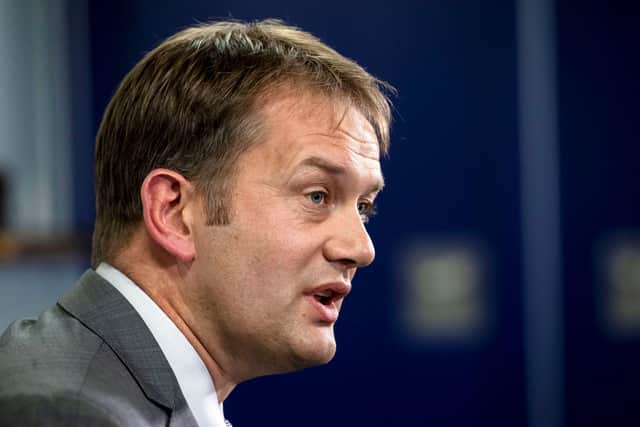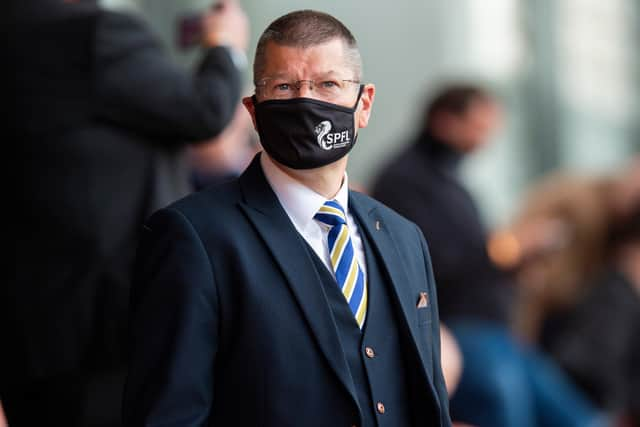Comment: Why critics of lower league suspension are missing the big picture


Peterhead chairman Rodger Morrison’s reference to the “bigger picture” injected a welcome dose of perspective into one of the debates that has engulfed Scottish football this week.
Reflecting on the decision to suspend all football underneath the Championship, his disappointment was clear but his reaction measured and proportionate.
Advertisement
Hide AdAdvertisement
Hide AdIn stark contrast, the criticism of this particular decision was as predictable as it was blinkered.


Yes, there are other issues of governance and communication that need to be addressed. Yes, the handling of last year’s suspension was shambolic. Anger has been bubbling under ever since. But criticism of this particular SFA decision, endorsed by the SPFL, is misplaced.
The League 1 and 2 chairmen expressing anger about lack of consultation seem to forget that Scottish clubs don’t have a good record of reaching swift and amicable agreements. There was no time to debate this particular problem, nor was there any appetite to face the public embarrassment that would have followed from the drawn out public disagreement that would have followed. The country has bigger problems.
This was a decision that had to come from the top. It had to be made quickly. Volunteers run the vast majority of the 250 or so clubs now under a three-week football suspension. They could not have been expected to carry a burden of responsibility relating to the nation’s health. Covid-19, after all, is not about football.
After the lockdown was announced, the SFA said nothing and then suggested that individual leagues should make up their own minds.


The governing body is staffed by full-time professional administrators and runs a coronavirus joint response group which has daily access to the Scottish Government and its scientific advisors, so its attempt to pass the buck could only go on for so long. Eventually, it accepted the responsibility last Sunday night. A decision had to be made. Scottish football had to do the right thing.
It is all too easy to fall into the trap – like Henry McLeish has done – of accusing the SFA, SPFL, or both, of sacrificing the small clubs for the benefit of the big boys. He argues that League 1 and 2 clubs were somehow being ‘punished’ for Celtic’s appalling judgement.
McLeish, the former First Minister, suggested that the SFA, under pressure from the Scottish Government, “offered up” the part-time clubs to keep the top two leagues going. “What have the lower leagues done to create this kind of crisis,” he asked. Nothing, is the answer.
Advertisement
Hide AdAdvertisement
Hide AdThe crisis is not about Celtic. It is about public health. A suspension decision would have been necessary had Celtic travelled to Dubai or not. The debacle of Dubai may have cranked up the pressure, but it cannot be conflated with the reality staring SFA chief executive Ian Maxwell in the face.


One week after the announcement of a new lockdown, they could no longer continue to justify allowing more than 270 football clubs to play on as if nothing had changed.
Not when only 23 of them have full-time professional players.
Not when the exemption for professional sports was intended only for ‘elite’ athletes.
Not when everyone else in the country was being asked to leave home only for essential purposes.


Calls for a suspension were initiated not by the Scottish Government, but by clubs themselves, most of them from outside the SPFL. As more and more questions were asked, it became apparent that the SFA would need to come up with an answer.
The SFA and SPFL’s biggest problem was how to suspend some levels of the so-called pro game without shutting it all down and sacrificing the broadcasting contracts that pay the bills. Where would they draw the line and then justify it?
If they deemed part-time behind-closed-doors football in the Highland League and Lowland League and below to be unessential, they could hardly justify it in League 1 and 2. Not when 17 of the 20 clubs in those divisions are also part-time. Keeping the Championship, with its two part-time clubs, going was the controversial part.
Advertisement
Hide AdAdvertisement
Hide AdThe catalyst for this suspension was not Celtic in Dubai but the virus itself. A new strain has led to a rocketing number of cases, hospital admissions and deaths. The message to the public, repeated day after day, could not be clearer. The situation is perilous.
Critics argue that there is “no evidence” of the virus spreading at lower league football clubs. There have been more Covid cases among Premiership players who undergo mandatory testing, they say.
Donald Trump would approve of such logic. He memorably told “his people” to stop testing because they kept finding more cases. Better not to know at all, he figured.


If full-time professionals who train and play under the strictest protocols are returning more positive tests, it is surely reasonable to assume that untested part-time players who have other jobs will be equally, if not more, susceptible. Many, as Raith Rovers have discovered after undergoing their first tests, may well be asymptomatic.
Waiting for positive cases to emerge before suspending the game would be shutting the stable door after the horse has bolted. We should know by know that acting early to prevent spread is critical.
The experts have gathered more than enough evidence. They repeat the same message. The virus spreads when people mix. The more people mix, the faster it will spread.
Football is not immune and will contribute to the national lockdown by cutting the actual number of people gathering for training and matches from 270+ clubs to 22.
The critics who say Leagues 1 and 2 have been ‘sacrificed’ should be grateful that there is still football to enjoy at all.
The SFA, of course, could have suspended everything, and it may very well come to that in the coming weeks.